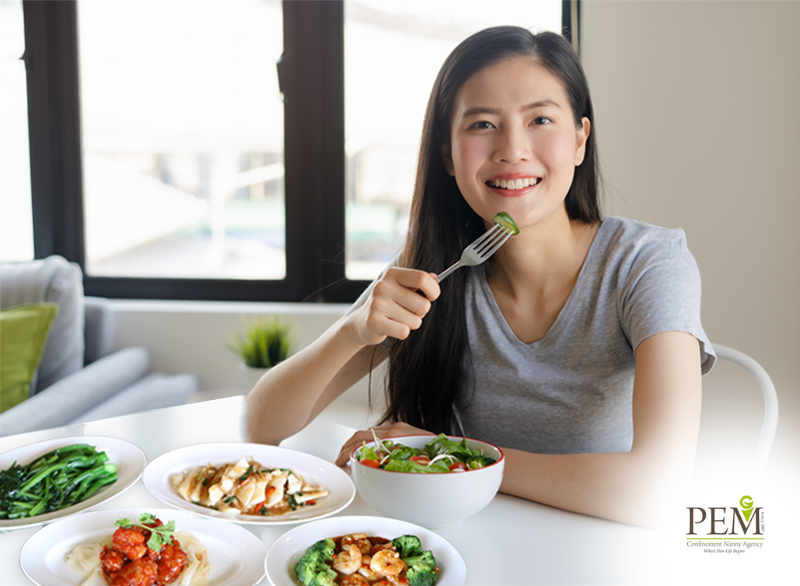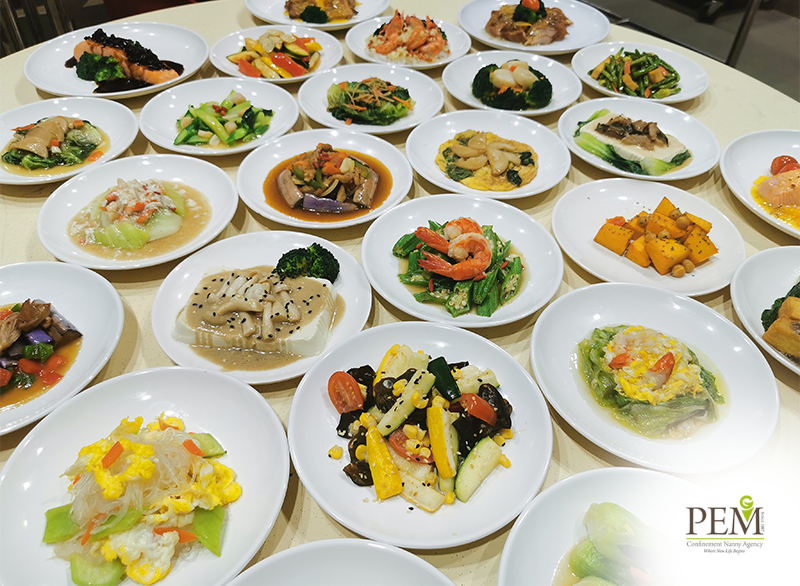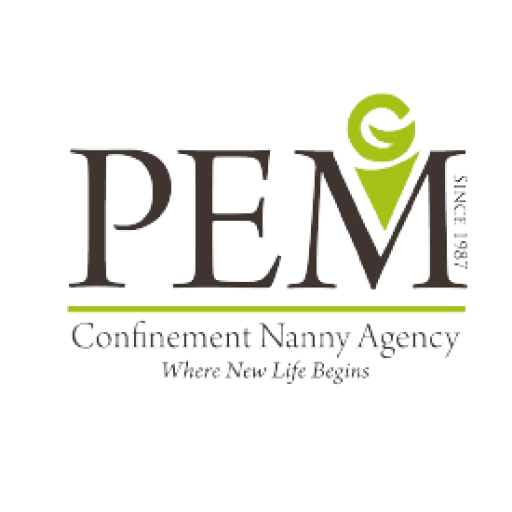[email protected] ♦ (+65) 6293 9249 ♦ Mon - Sun : 10:00AM - 7:00PM
How to Plan Your Confinement Meals

The confinement period is the most crucial time for recuperating and recovering from the journey of carrying a human inside you for nine months and then giving birth to him or her. When it comes to confinement, you know for sure that there are many aspects to consider, such as resting, nutrition, exercise, and even baby care. Well, to lift some burden off your shoulders, we’re here to cover one of those things – nutrition.
Knowing how to plan your confinement meals will be a breeze once you’ve gotten these 3 aspects below sorted.
How Much to Eat
During pregnancy, you’re eating for two. This continues after giving birth as your diet will affect your breast milk for your newborn too. Now, the normal calorie intake for an adult woman is 1,800 to 2,200 a day. And you can portion your meals in accordance to My Healthy Plate, a guide created by Singapore’s Health Promotion Board, which is:-
- a quarter plate of whole grains
- a quarter plate of protein
- a half plate of fruits and vegetables
However, things are different if you are breastfeeding, as you are essentially eating for two once again. In this case, eating an additional 500 calories would help keep your energy levels up and get you sufficient nutrients.
What to Eat
Seeing as how My Healthy Plate has provided a guide, you already have a general idea of what you should be eating.
But that is not enough.
A woman who has just given birth has her health compromised and might perhaps experience some nutrient deficiency, so there are certain nutrients that are especially needed during this time of recovery. What’s more, these nutrients are essential for the growth of the newborn as well, and they get the nutritional benefits through breast milk, which is all the more reason to consume these nutrients.
Here is a little guide.
| Nutrient | Benefits | Sources |
| Vitamin A | For vision, immune system, and reproduction | Spinach, carrots, sweet potatoes, papaya, mango |
| Vitamin D | For healthy bones and teeth and immune system, improves mood | Eggs, fatty fish like salmon and sardine, mushroom, fortified milk, fortified soy |
| Choline | For the brain and cell maintenance, regulates bodily functions | Meat, fish, dairy, and especially eggs
*2 eggs a day is enough to cover 50% of intake requirement for nursing mothers |
| Iodine | For baby’s brain development, regulates the production of the thyroid hormones | Seafood and fish |
| Omega-3 DHA | For brain health, heart health, vision, and inflammatory conditions | Fatty fish like salmon and tuna, eggs, and shrimp |
That is not to say that these are the only ones you should be focusing on. A little bit of everything is the way to go to get a balanced diet. Do not only eat certain foods while avoiding others like the plague. The best way to know if you are deficient in any nutrient would be to consult a dietitian or doctor. Otherwise, this is just a general guide.

On the traditional side, herbs are customary and a must in confinement. The Chinese believe in eating ‘heatier’ foods with ingredients like ginger, garlic, rice wine, and sesame oil. This is because they believe that mothers’ ‘qi’ or the balance between yin and yang are affected during and after pregnancy, and these foods are able to improve the energy flow of the body and immune system. Some examples would be herbal soup for confinement, pig trotter vinegar, and sesame chicken.
What to Avoid
Although there is no hard and fast rule about what foods to avoid during confinement, there are some that are recommended to be taken less, or only on occasion.
- Chocolate – Not to entirely avoid, but dark chocolate once in a while is alright
- Caffeine – Found in tea, coffee, and carbonated drinks, limiting your intake would be ideal
- Alcohol – Recommended to avoid, but there are some exceptions like rice wine or Bénédictine D.O.M used for cooking (best to boil away the alcohol before consumption)
Rather than avoiding food, it is wiser to opt for healthier options like whole grains instead of white grains, or fruits, seeds, and nuts as snacks instead of fried food. This way, you get your fill, you satisfy any cravings, and you get great nutrition.
Aside from confinement meals, it is traditionally advised to have confinement herbal bath Singapore too. You could get a whole month’s worth of herbal bath supplies from a confinement herbal package. Here at PEM Confinement Nanny Agency, we offer confinement herbal package for red date tea and confinement soups too, both amazing for blood circulation and general health.
Not only that, our nannies are trained and experienced in preparing a variety of confinement foods. So, if you find it a hassle to plan your confinement meals, our nannies can do it for you. All you have to do is head on over to our website, and our services are just a click away.







